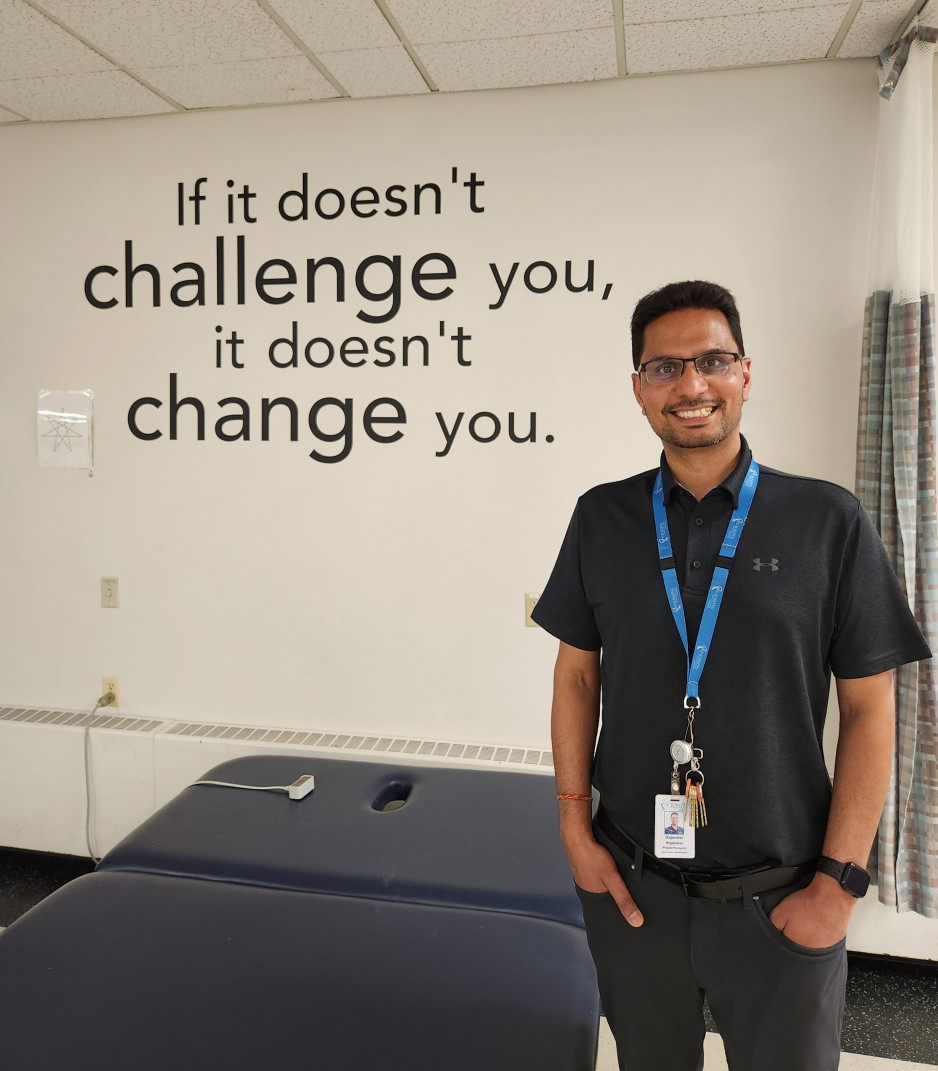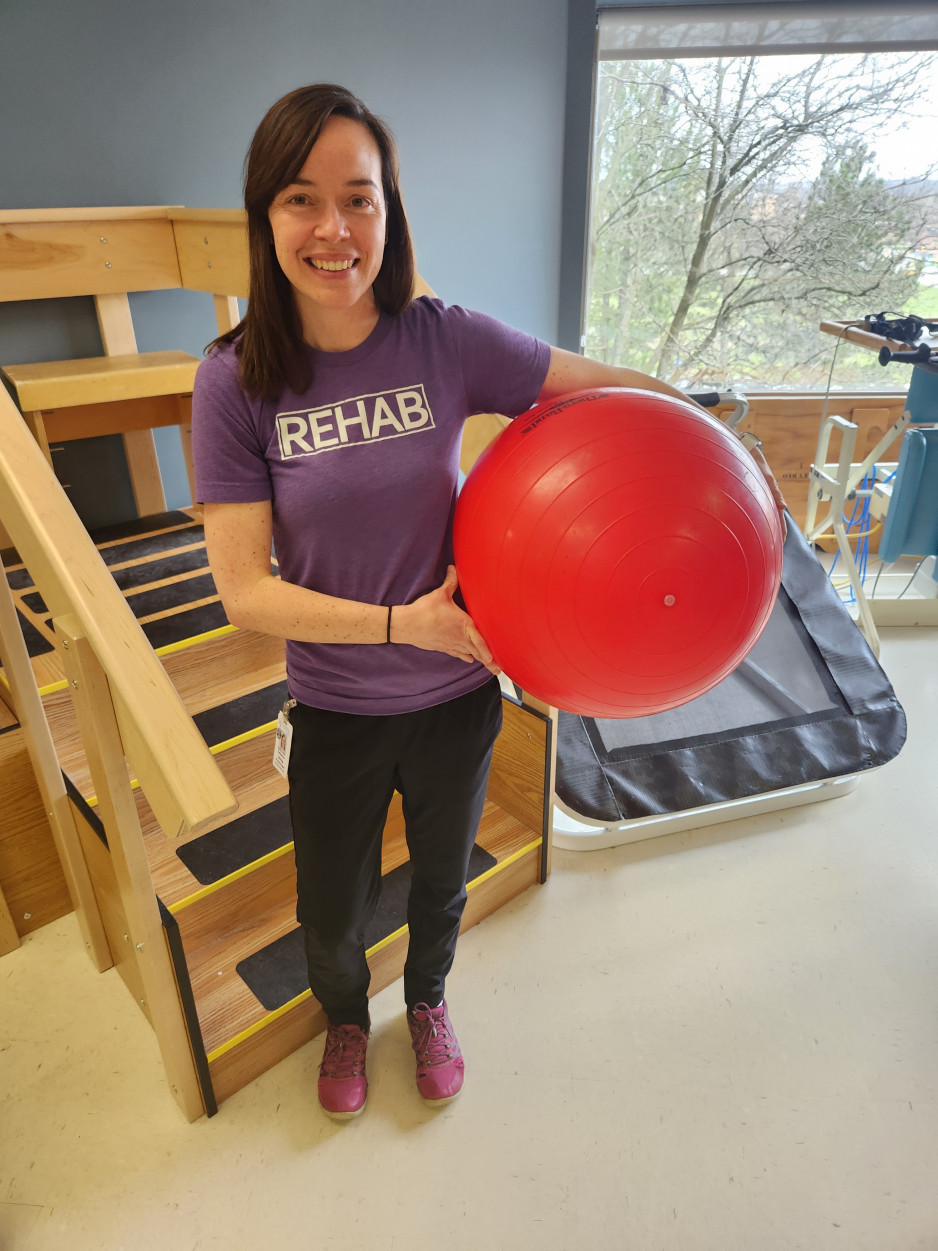Building relationships, improving mobility and cheering on progress
He was dealing with a stubborn foot injury at the time and his parents had difficulty finding a physiotherapist- when they finally did, he recalls feeling enthralled.
“I remember being impressed at how present he was with me, how skilled he was.”
Today, Raj works as a physiotherapist in the Neurotrauma Rehabilitation Program at St. Joseph’s Health Care London’s Parkwood Institute. There, he helps support a variety of patients dealing with neurological injuries due to a stroke, motor vehicle accident, spinal cord injury, or other brain-related trauma. For Raj, being able to help patients improve their mobility is what makes his role so rewarding.
“The best part about being a physiotherapist is that we help make lifelong changes with and for our patients,” says Raj. “Even if it is something small- like being able to move around in their bed, or being able stand on their own- I enjoy helping people improve their quality of life.”
Catherine Darling, a physiotherapist with St. Joseph’s inpatient Stroke Rehabilitation Program- also located at Parkwood Institute, shares many of the same sentiments when it comes to helping patients achieve their goals.
“Witnessing the first time a person takes a step or even just wiggle their toes- we get to share in those moments.”
- Rajendar, physiotherapist in the Neurotrauma Rehabilitation Program, Parkwood Institute
“The goals for patients are big within the inpatient stroke unit,” says Catherine. “In this particular area of physio, we’re helping people during a very challenging time in their lives.”
Physiotherapists like Raj and Catherine are experts in how an individual’s physical impairments impact their mobility or ability to move throughout their environment. They work with patients one-on-one, often over many months, which Raj believes is what allows him to build good relationships and in-depth connections with the people who come to him for care.
“The job satisfaction is so great when you see those changes in patient’s lives,” explains Raj. “Witnessing the first time a person takes a step or even just wiggle their toes- we get to share in those moments.”
The month of May provides an opportunity to raise awareness and celebrate the benefits of physiotherapy; a profession aimed at restoring, maintaining and making the most of an individual’s mobility, function and well-being. And as Catherine explains, physiotherapy has a role in pretty much every health condition.
“Exercise is actually a medication for almost every illness you can think of,” she adds.
Both Raj and Catherine agree that a full-pronged team approach to care is always the path to the best outcomes for patients.
“We could never get through what we accomplish in our daily roles without our physiotherapy assistants- they are amazing,” says Catherine. “They help us out as a second set of hands and often jump in with ideas on how to help patients progress. We work closely with all other disciplines as well- we would never get anyone back home without our multidisciplinary approach to care.”
Within the rehabilitation programs at Parkwood Institute, patients themselves play a big role in the development of their own individualized care plans.
“As we get to know their interests and goals, we make sure treatment plans are patient-centered and include things that are meaningful for each person,” explains Catherine. “In a way, physiotherapists are also cheerleaders for their patients,” she adds. “A huge part of our job is just to encourage people.”
When asked what advice she would give the public about injury prevention, Catherine had this to share:
“Getting at least 30 minutes of exercise every day is a great way to positively impact your health and prevent injury. You don’t want to look back and wish you had taken better care of your physical self-earlier in life. Whether it’s walking, biking, or lifting weights- start today and your future self will thank you.”

